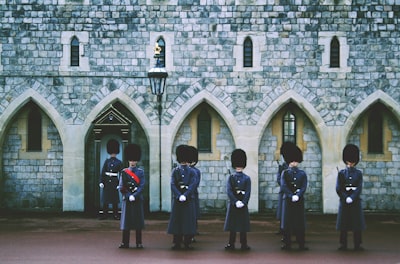A recent investigation has found that certain members of the British Army stationed in Kenya have continued to use the services of sex workers despite a long-standing prohibition on such conduct. The revelations have sparked renewed debate over military discipline, accountability, and the UK’s responsibilities when operating abroad.
Findings of the inquiry
The inquiry examined allegations of misconduct among British troops serving in Kenya, a country that hosts a long-established British Army training presence. Despite official rules prohibiting sexual exploitation, evidence emerged indicating that some soldiers were still engaging with sex workers during their deployment.
Witness testimonies, local reports, and internal records suggest that this behavior has persisted even after repeated warnings and the implementation of strict codes of conduct. The findings raise questions about how effectively such policies are enforced and monitored in practice.
Official response from military leadership
Chief of the Defence Staff, General Sir Roly Walker, expressed deep concern over the findings, reaffirming the army’s commitment to eradicating any form of sexual exploitation linked to its operations. He emphasized that the military’s presence in Kenya must be built on mutual respect, lawful conduct, and ethical behavior.
“There is no place for sexual exploitation in our ranks,” Walker stated, noting that the army will intensify efforts to ensure compliance with conduct rules, enhance oversight mechanisms, and strengthen training on ethical responsibilities.
Impact on UK-Kenya relations
The revelations carry potential diplomatic consequences. The British Army’s training operations in Kenya have long been viewed as a cornerstone of bilateral security cooperation, but such reports risk undermining public trust and damaging the image of the UK forces among local communities.
Human rights advocates in Kenya have voiced concern that these incidents contribute to broader patterns of exploitation and inequality, calling for stronger safeguards and greater transparency from both the UK and Kenyan authorities.
Challenges in enforcement
Enforcing bans on sexual exploitation in overseas deployments presents significant challenges. While official policies are clear, the transient nature of deployments, cultural misunderstandings, and limited oversight in remote training areas create opportunities for rules to be broken.
Some analysts suggest that addressing the issue will require more than disciplinary measures — it will necessitate a cultural shift within military ranks, sustained education on ethical engagement, and closer cooperation with local law enforcement.
Broader context of accountability
The inquiry’s findings are part of a wider global conversation about military accountability in host nations. Similar issues have been reported in other parts of the world, prompting calls for universal standards and stricter compliance systems across all international military operations.
For the British Army, the challenge now lies in demonstrating that policies are not just statements on paper, but enforceable commitments that uphold the dignity and rights of all people in areas where troops are deployed.
Conclusion: Upholding trust through action
The continued use of sex workers by some British soldiers in Kenya, despite a formal ban, underscores the urgent need for the military to reinforce its ethical standards and improve enforcement mechanisms. True accountability will be measured not only by the introduction of new rules but by the visible transformation of conduct in the field.
If the British Army seeks to maintain trust both with its host nations and the public it serves it must ensure that its values are reflected in every aspect of its overseas engagements. Actions, not promises, will define its credibility in the years ahead.
for more news : africaheritagevoice.com




